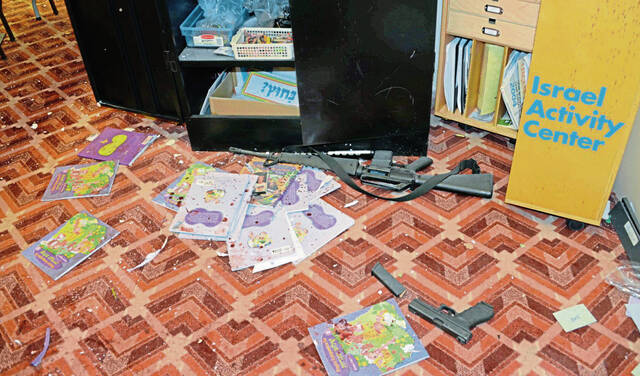In a criminal court, the point of a trial is establishing responsibility.
Was the person at the defense table guilty? Is there enough evidence to say this is who committed the crime?
With some crimes, this seems downright pointless. We know who did it, society says. We know who is responsible, cries the community.
This is the case with the Pittsburgh synagogue shooting.
From Oct. 27, 2018, the identity of the shooter was not a question. Robert Bowers left a digital trail of breadcrumbs that led from his social media declarations to 5898 Wilkins Ave. in Squirrel Hill, where three Jewish congregations worshipped.
“Screw your optics, I’m going in,” he proclaimed on Gab about two hours before the first shots were fired at the Tree of Life synagogue.
The federal criminal case in which Bowers was charged with 63 crimes connected to the murder of 11 people wasn’t about fingerprints and DNA. The Baldwin man was apprehended at the scene. His attorney, Elisa Long, conceded in her closing argument that central point of the case: He entered the house of worship with a gun and shot people.
When that is your own lawyer’s take, it’s not hard to see how you are convicted, as Bowers was Friday.
It can make one wonder how the case even gets to trial. That is where the importance of process comes in.
The jury deliberated Thursday afternoon and Friday morning before finding Bowers guilty of all counts, including 11 counts of obstruction of the free exercise of religion resulting in death, 11 counts of hate crimes resulting in death and 11 counts of using a firearm to commit murder. But after weeks of hearing testimony and seeing evidence, the jurors are not done with their work.
After a short break, they will be back in their seats as the case resumes, this time focused on the penalty phase. They have decided on Bowers’ guilt. Now they will weigh his life or death.
That is what makes establishing even unquestioned guilt so critical. Deciding on punishment without deliberate review of facts is what a mob does. It isn’t justice. It is vengeance.
Regardless of the decision the jury comes to at the end of its second phase, expected to stretch into July, that decision will be based in truth, deliberated under the law and arrived at after sober contemplation rather than a rush to judgment.








